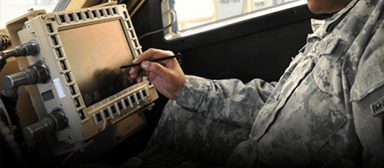Our Rugged testing capabilities include:
Transit Drop Test
–
Used to determine the structural and functional integrity of the materiel to a transit drop in its transit or combination case.
Blowing Rain Test
–
The effectiveness of protective covers, cases, and seals in preventing the penetration of water into the material.
–
The capability of the material to satisfy its performance requirements during and after exposure to water
–
Any physical deterioration of the material caused by the rain
–
The effectiveness of any water removal system
–
The effectiveness of protection offered to a packaged material
Vibration Test
–
Address most of the life cycle vibrations likely to be experienced by the materiel as well as verify that material will function in and withstand the vibration exposures of a life cycle.
Humidity Test
–
Used to determine the resistance of material to the effects of a warm, humid atmosphere as well as surface effects, changes in material properties, condensation and free water.
Low Temperature Test
–
Used to obtain data to help evaluate effects of low temperature conditions on material safety, integrity, and performance.
High Temperature Exposure Test
–
Used to obtain data to help evaluate effects of high temperature conditions on material safety, integrity, and performance.
Sand and Dust Resistance Test
–
Dust: This test is performed to help evaluate the ability of material to resist the effects of dust that may obstruct openings, penetrate into cracks, crevices, bearings, and joints, and to evaluate the effectiveness of filters.
–
USand: This test is performed to help evaluate the ability of material to be stored and operated in blowing sand conditions without degrading performance, effectiveness, reliability, and maintainability due to abrasion (erosion) or clogging effects of large, sharp-edged particles.
Altitude Test
–
Used to evaluate materiel likely to be stored and/or operated at high ground elevation sites, transported or operated in pressurized or unpressurized areas of aircraft, exposed to a rapid or explosive decompression, or carried externally on aircraft.
Temperature Shock Test
–
Used to determine if material can withstand sudden changes in the temperature of the surrounding atmosphere without physical damage or deterioration in performance.
If you have an immediate need for MIL-STD-810,Ingress Protection, MIL-STD-461, or HALT testing Contact us for help in creating a rugged product test plan, or submit a request for testing.






